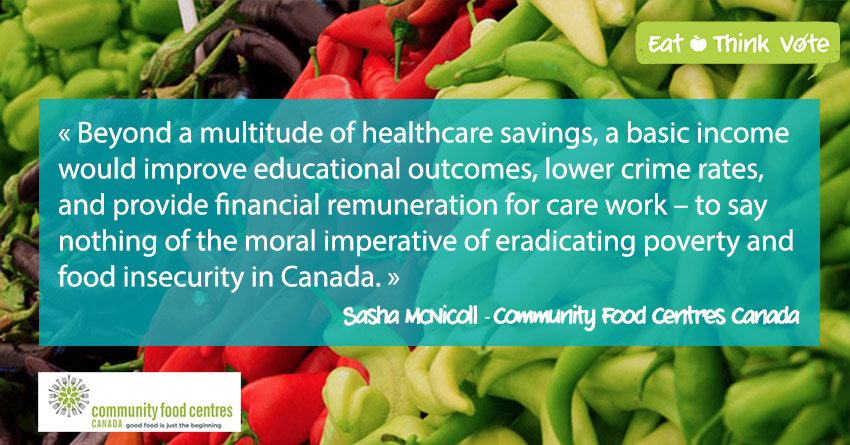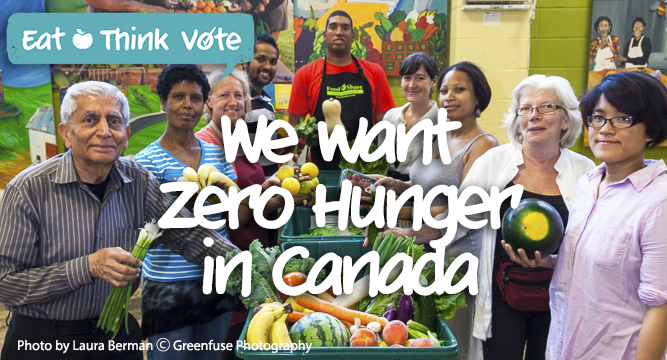Giving Canadians a solid floor to stand on
By Sasha McNicoll - Research & Evaluation Coordinator at Community Food Centres Canada.

“This article was published on July 28, 2015 for Food Secure Canada's Eat Think Vote campaign"
Every year, Community Food Centres Canada staff carry out an evaluation of programs at all of our partner sites. We speak with participants and hear inspiring stories of lives transformed through good food and new friendships. We also hear frank accounts of lives lived in poverty. These stories detail the difficult choices made by one in seven Canadians and fly in the face of the tired adage that people living in poverty must pull themselves up by their bootstraps.
This year, I spoke with an injured worker whose disability payments didn’t cover basic expenses, to a man whose divorce left him penniless, to a woman whose post-traumatic stress disorder left her unable to work, and to scores of others who made use of food banks and drop-in meals despite not fitting in with the stereotype held by many of people living in poverty. Community Food Centres offer people a welcoming place to go, a healthy meal, a feeling of purpose, and a voice for change. But much more is needed. These stories make clear the urgent need for governmental action that effectively addresses the fact that four million Canadians, 1.15 million of them children, must worry about putting food on the table.
Community Food Centres Canada and Food Secure Canada have proposed such action: we are calling on the federal government to explore a basic income. Basic income — which would set an income floor beneath which no Canadian could fall — has been proposed by prominent economists, politicians, and social activists for decades and piloted in five North American regions, including Manitoba. Any Canadian whose income fell below a certain level would receive a top-up through the tax system, effectively ensuring that no Canadian would ever again have to try to make a life on the absurd monthly income of $656.[1]
To be sure, this is an expensive proposal. Estimates run in the $30- to $50-billion range, roughly ten or 15 percent of the federal budget. But before you balk at this number, consider that poverty currently costs Canadians up to $86 billion a year. Income is the single largest determinant of health. In the five years residents of Dauphin, Manitoba were afforded a basic income, for example, hospitalization rates decreased 8.5 per cent. Given that hospital stays account for nearly 30 percent of healthcare spending in Canada, a decrease of this magnitude across the entire country would save billions.
Beyond a multitude of healthcare savings, a basic income would improve educational outcomes, lower crime rates, and provide financial remuneration for care work – to say nothing of the moral imperative of eradicating poverty and food insecurity in Canada.

- Log in to post comments


Comments
StateDivorce
There are many choices for the legal process of divorce. Litigation and mediation have their own pros and cons that should be considered. StateDivorce